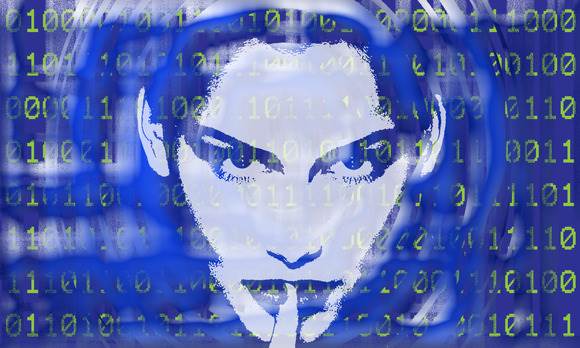Russian state-sponsored hackers have been blamed for recent high-profile breaches

IDGNS
Hackers are becoming a major source of political leaks in this year’s presidential race.
Case in point: On Tuesday, stolen emails from former secretary of state Colin Powell became headline news after a mysterious site with possible ties to Russian cyber spies gave them to the press. Since then, media outlets have been pointing out juicy details found in the emails. For example, Powell called Clinton “greedy” and her rival Donald Trump a “national disgrace.”
The incident has security experts worried that hackers are manipulating U.S. media outlets to influence this year’s election.
“The media is certainly being used as a battlefield here,” said Rich Barger, CIO with security firm ThreatConnect.
The stolen emails from Powell are just the latest political leak that’s suspected of coming from Russian state-sponsored hackers. In June, the Democratic National Committee blamed that country’s government for orchestrating a data breach that stole sensitive files.
Those files later threatened to damage Hillary Clinton’s presidential campaign when a hacktivist known as Guccifer 2.0 leaked them.
Although Guccifer 2.0 claims to be Romanian, some security researchers suspect he’s a front for Russian cyber spies.
Tuesday’s release of stolen emails from Powell may be connected to the DNC leak. A site called DCLeaks has been publicizing the information to selected members of the press.
DCLeaks claims to be the work of “American hacktivists.” But ThreatConnect has found evidence linking the DCLeaks site with an elite Russian cyberespionage team called Fancy Bear, the same group that is suspected of stealing files from the DNC.
Russia has denied being involved in any of the hacks, but Barger says Russian state hackers are the most likely culprits.
Whoever instigated them, the leaks are undermining confidence in U.S. political parties and the presidential candidates, Barger said. And as media outlets jump on any election news they can find, hackers can manipulate coverage, Barger said.
“Folks have to say, ‘where is this information coming from?’ and not just focus only on the information,” he said. “If the hackers have 100 documents, they can only chose to give 25 of them, because the rest don’t fit their narrative.”
The high-profile leaks haven’t been contained only to U.S. politics. On Tuesday, the World Anti-Doping Agency blamed Fancy Bear for stealing medical files on U.S. Olympic athletes. The group has posted the stolen files on a website, and claim that they show U.S. athletes doped during the Rio Games.
The leaked files may seem legitimate, but security experts warn that hackers could end up tricking the U.S. media with leaked documents that turn out to be fake.
“This is possible and it will happen,” said Bruce Schneier, a longtime security guru. For example, hackers could release a trove of legitimate documents but falsify a few of the details, he said.
“Just remember when you see them, maybe they are not what you think they are,” Schneier said.
It’s still not clear how the U.S. may eventually respond to any of these hacks. U.S. intelligence agencies reportedly are confident that Russia hacked the DNC, but so far President Obama has chosen not to officially point fingers.
In the meantime, security experts expect the hackers to continue leaking sensitive files, especially as the November election nears.
“That’s one of the vulnerabilities of democracies,” said John Bambenek, a threat intelligence researcher with Fidelis Cybersecurity. “They can be more susceptible to this kind of mass influence of the public.”







